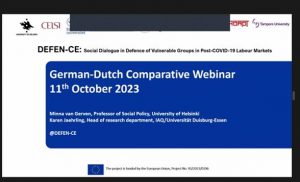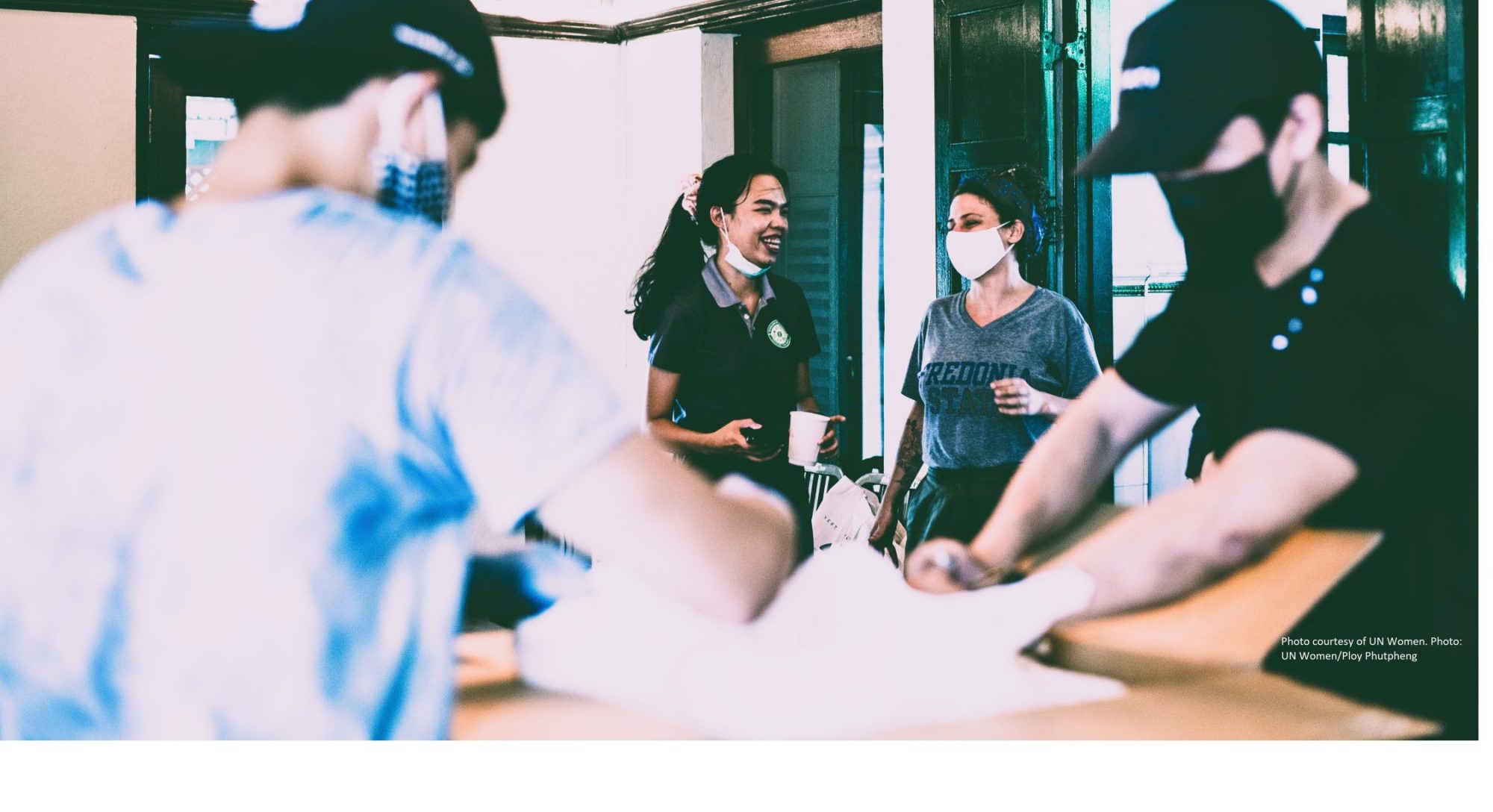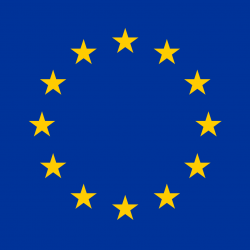On the 11th of October 2023, the DEFEN-CE project hosted an enlightening German-Dutch comparative webinar. The event was opened by Professor Minna van Gerven and Senior Researcher Karen Jaehrling. Here are the key takeaways from this comparative analysis.
The Netherlands features a well-established labor market with strong institutional involvement of social partners. It maintains stable labor relations, a broad bargaining coverage (76.6%), and declining union density. Despite a significant GDP drop in 2020 (3.9%), it rebounded impressively in subsequent years, outperforming its neighbors. In the Netherlands, pandemic responses included wage payment continuation, support for self-employed individuals, and assistance with fixed costs. Their social dialogue was marked by value sharing and collaboration. Early pandemic collaborations led to quick and effective responses, though some conflicts arose later on.
In Germany, pandemic responses leaned towards unilateralism due to limited central and tripartite social dialogue. However, established social dialogue systems and protection mechanisms were expanded to serve as stabilizers. This benefited vulnerable groups, such as solo self-employed individuals, youth, and working parents. Germany experienced an increase in the number of employees in short-term work schemes, and youth unemployment spiked during the pandemic. Certain sectors, like accommodation and food services, retail, manufacturing, and airport transport, saw a dip in average monthly earnings.
Germany faced specific challenges in its agricultural sector, which historically lacked labor protections. The pandemic provided a unique opportunity to address these disparities. New policies aimed to improve the living and working conditions of seasonal workers. Natioinal responses were supplemented by new EU-Level policies: the EU introduced “social conditionality” in its Common Agricultural Policy (CAP) for 2023-2027. This ties payments to farmers with the rights of seasonal workers. However, the implementation and enforcement of this conditionality are still under debate.
Comparing Germany and the Netherlands’ pandemic responses revealed both differences and similarities. While the Netherlands relied on established collaboration and interactive bargaining, at least some actors in Germany used the pandemic as a laboratory for innovative social dialogue, especially in vulnerable sectors.


